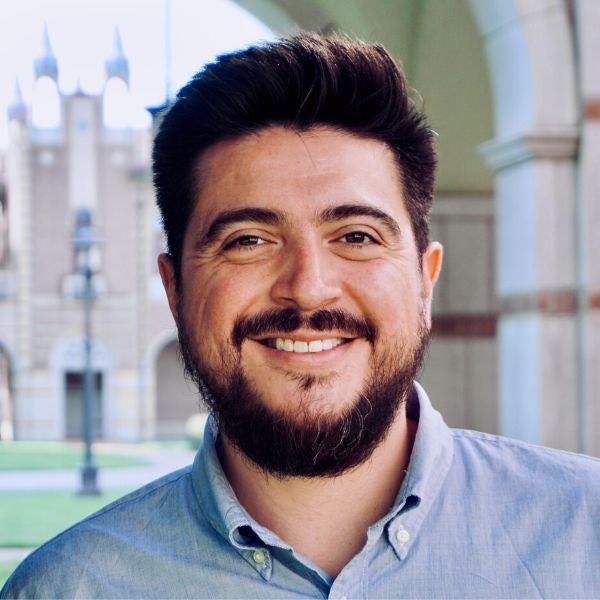The Ken Kennedy Institute's March Member of the Month: Rodrigo Ferreira, Assistant Teaching Professor of Computer Science
At Rice University, Rodrigo teaches courses on the ethics of computing, data science, and artificial intelligence (AI), and he develops research on ethics in computer science education, computational culture, and tech policy. Rodrigo’s research has been published in various academic venues, including ACM and IEEE publications, and philosophy journals, such as Teaching Ethics, and has been featured in news media channels, including The Houston Chronicle, Telemundo, and NPR. Rodrigo is co-creator (in collaboration with Dr. Moshe Vardi) of “Deep Tech Ethics” as a pedagogical approach that seeks to include greater focus on social responsibility in computer science education, and he is co-author of the “AI Ethics” recommendation report in the Mexican National AI Agenda (2020). In addition to his position in Computer Science, Rodrigo also holds a courtesy appointment in the Department of Philosophy, is a member of Steering Committee for the Science and Technology Studies Program, and is a Faculty Scholar at the Baker Institute for Public Policy.
How would you explain your research in 1-2 sentences?
My research is on the ethical and social implications of contemporary technology – primarily focused on computing, data science, and AI.
How does your work impact the community at large?
My work encourages students – as future technology developers – to think about the impact of technological innovation across cultural, socio-economic, and geo-political contexts. Often today technologies are produced in the name of “disruption” without regard to who or what is being disrupted and why. My work aims to encourage students to include historically marginalized voices in developing new technologies and to participate in democratic processes that strive for safety and trustworthiness.
What kind of collaborations are you looking for at Rice and within the community?
My field of study is by nature multidisciplinary – there would be no possible way to understand the ethical and social implications of technology without the work of engineers, historians, philosophers, anthropologists, media theorists, or policy specialists. I’m very happy to have a chance to interact with top scholars in these fields here at Rice.
How do you see computation and data advancing in the future?
Computation and data will certainly continue to advance to create more health and resources for the future – the question is always, to paraphrase William Gibson, “will that future be evenly distributed?”
How has the Ken Kennedy Institute helped you and/or your research?
The Ken Kennedy Institute has greatly helped me to connect with brilliant colleagues, engage in insightful conversations, and to bring together critical, multi-disciplinary ideas into broader dialogue – currently a fellow Ken Kennedy Institute member and I are helping to organize a special panel on AI Ethics as part of the 2024 AI in Health Conference.
What is your favorite book or movie?
I recently finished reading the Remembrance of Earth’s Past trilogy by Cixin Liu and thought that it was fantastic – I’m very excited about the Netflix adaptation coming out soon. It reminded me a lot of other of my favorite sci-fi books such as Light by M. John Harrison and movies such as The Fountain by Darren Aronofsky.
Do you have any words of inspiration you would like to share?
When I was in college, I used to have a quote by Kurt Vonnegut up on a poster – I’m not sure how inspirational it is, but it’s always helped me put my academics goals in perspective: “Tiger got to hunt; bird got to fly; Man got to sit and wonder 'why, why, why?' Tiger got to sleep; bird got to land; Man got to tell himself he understands.”
_
See Rodrigo's Rice Profile here.

